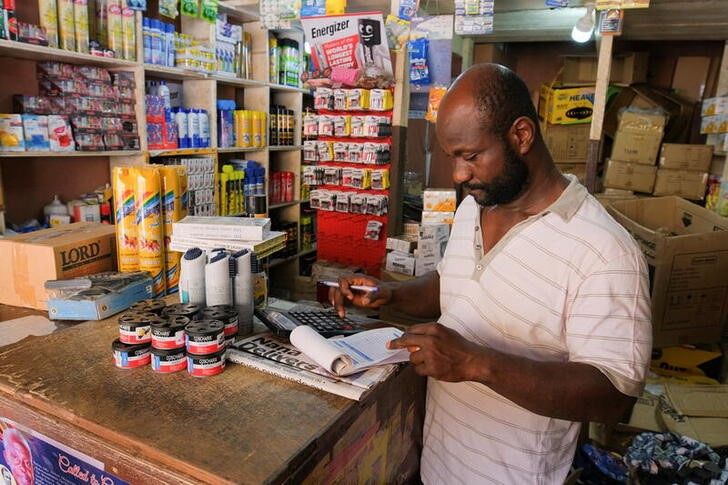Ghana inflation hits 21-year high above 50% in November

ACCRA, Dec 14 (Reuters) - Ghana's annual consumer inflation accelerated to a new 21-year high of 50.3% in November, up from 40.4% the previous month, driven by utilities, food and fuel, data showed on Wednesday.
The spike comes a day after Ghana secured a staff-level agreement with the International Monetary Fund for a $3 billion, three-year support package.
Ghana approached the IMF in July to ask for financial help after soaring prices and economic hardship spurred street protests.
The West African gold, oil and cocoa producer is battling its worst economic crisis in a generation.
The local cedi currency is down around 40% against the dollar this year. It traded at all-time lows in November, before rallying in anticipation of the IMF deal.
Government spending cuts and several central bank interest rate hikes have so far failed to tame inflation.
The government has started restructuring its domestic debt and is discussing a strategy for external debt restructuring, Finance Minister Ken Ofori-Atta said on Tuesday.
Costs rose the most in the category of housing, water, gas and electricity, with prices up 79.1%.
Furnishings and household equipment came second at 65.7%, followed by transport, including fuel, at 63.1%. Food inflation was at 47.9%.
Petrol prices have fallen in December as the cedi has strengthened, which could mean less inflationary pressure from the transport category this month.
Transport had the highest month-on-month inflation in November at 12.8%.

